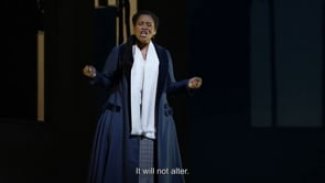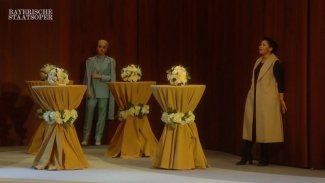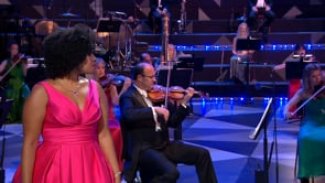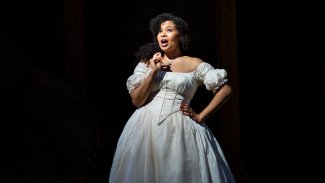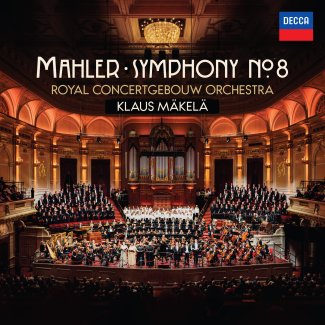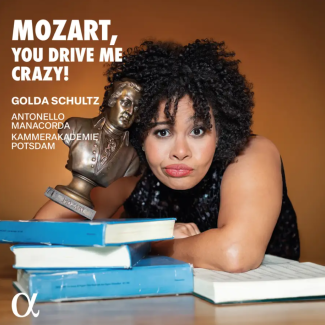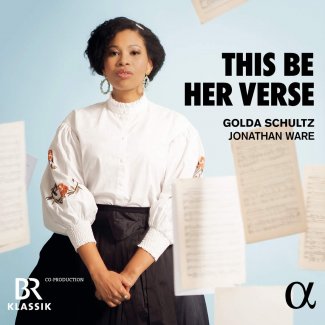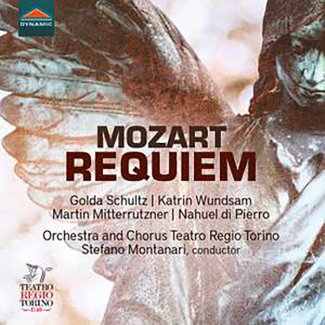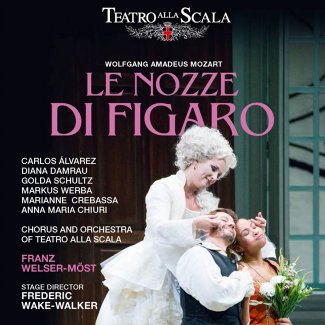
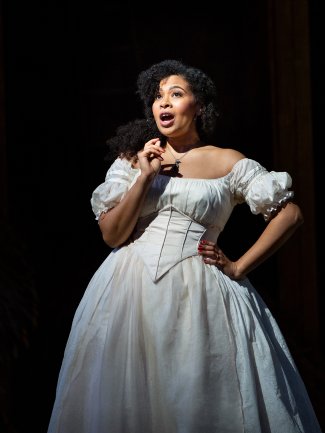
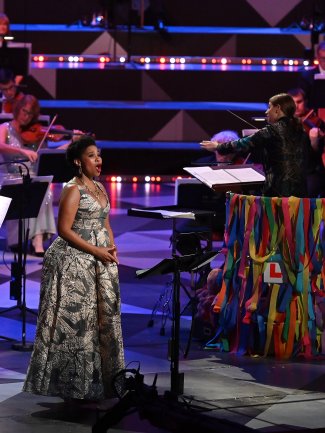
Golda Schultz
Links
“The South African soprano is blessed with one of the most golden, rich-toned voices of her generation”
Opera, September 2024
South African soprano Golda Schultz, lauded as one of today’s most talented and versatile artists, is as at home in leading operatic roles as she is a featured soloist with the world’s foremost orchestras and conductors. Unanimously praised for her “warmth of tone and sensitivity of phrasing”, Schultz trained at the Juilliard School and Bayerische Staatsoper’s Opernstudio and found immediate success on both sides of the Atlantic through early operatic appearances as Sophie (Der Rosenkavalier) at Salzburger Festspiele, Contessa Almaviva (Le nozze di Figaro) at Glyndebourne Festival Opera and Pamina (Die Zauberflöte) at Metropolitan Opera and Wiener Staatsoper.
Further key opera roles that have pathed the way to today’s flourishing career include Micaëla (Carmen) at Opéra National de Paris and Lyric Opera of Chicago, Liù (Turandot) at Wiener Staatsoper, Agathe (Der Freischütz) at Bayerische Staatsoper, Vitellia (La clemenza di Tito) at Salzburger Festspiele, Clara in Jake Heggie’s It’s A Wonderful Life at San Francisco Opera and Madame Lidoine in Barrie Kosky’s acclaimed staging of Dialogues des Carmélites at Glyndebourne Festival Opera. As a regular presence on the stage of the Metropolitan Opera, appearances include Clara (Porgy and Bess), Nanetta (Falstaff), Sophie, Anne Trulove (The Rake’s Progress) and Adina (L’elisir d’amore). Schultz made her role debuts as Juliette (Roméo et Juliette) at Dallas Opera and as Donna Anna (Don Giovanni) at Opernhaus Zürich and her appearance as Fiordiligi (Così fan tutte) under the baton of Alexander Soddy marked her house debut at the Royal Ballet & Opera.
Show More
Hot on the heels of her runaway success as Donna Anna at Festival d’Aix-en-Provence under Sir Simon Rattle, Golda Schultz’s 2025/26 season is no less impressive including her role debut as Rosalinde in a new setting of Die Fledermaus by André Heller-Lopes at Opernhaus Zürich conducted by Lorenzo Viotti, and her return to Münchner Opernfestspiele as Agathe under Daniele Rustioni, and as Liù under Zubin Mehta. In concert, the season brings a European tour with Chamber Orchestra of Europe and Robin Ticciati in a programme featuring works by Weil, Gershwin, Korngold and Stravinsky culminating in a welcome return to the stage of the BBC Proms and further features Mahler’s Symphony No.8 with Berliner Philharmoniker and Kirill Petrenko at both Philharmonie Berlin and Osterfestspiele Salzburg, and her return to the New York Philharmonic for performances of Knoxville: Summer of 1915 conducted by Kwamé Ryan. In addition to an all-Mozart programme with San Francisco Symphony Orchestra conducted by Harry Bicket, she performs Previn’s Honey and Rue with Orchestre de Montpellier under the baton of Roderick Cox.
A popular guest with the world’s leading orchestras, recent highlights include Una poenitentium in Mahler’s Symphony No.8 with the Royal Concertgebouw Orchestra conducted by Klaus Mäkelä and Beethoven’s Symphony No.9 with Gewandhausorchester and Andris Nelsons to commemorate the 200th anniversary of the premiere of the work. She sang Mahler’s Symphony No.4 with the New York Philharmonic under Gianandrea Noseda, and Luonnotar with the Boston Symphony Orchestra (Nelsons). Schultz sang her first performances of Strauss’ Vier letzte Lieder with Los Angeles Philharmonic Orchestra and Gustavo Dudamel and made her debut with New York Philharmonic Orchestra in his Brentano Lieder under Santtu-Matias Rouvali, sang Mozart’s Requiem with Philadelphia Orchestra conducted by Yannick Nézet-Séguin and performed at Salzburg Festival in Schubert’s Mass No.6 under Franz Welser-Möst. In 2020, Golda Schultz starred in BBC’s Last Night of the Proms, together with Dalia Stasevska and BBC Symphony Orchestra, with their specially curated programme broadcast live on radio and television to a vast global audience.
Golda Schultz’s debut solo album, This Be Her Verse (Alpha Classics), explores the worlds and inspirations of female composers from the Romantic era to present day, including a new commission from Kathleen Tagg and Lila Palmer and curated together with long-time collaborative pianist Jonathan Ware. Schultz’s second and current release Mozart, You Drive Me Crazy!, examining the complexities of the female experience in the three da Ponte operas in collaboration with Antonello Manacorda and Kammerakademie Potsdam, is winner of the 2025 Opus Klassik Solo Vocal Recording of the Year Award.
In an acclaimed recital partnership, Golda Schultz and Jonathan Ware have performed together at Berlin’s Pierre Boulez Saal, Wigmore Hall, Kölner Philharmonie, San Francisco’s Herbst Theater, St Paul’s “The Schubert Club”, Princeton University as well as at Edinburgh, Aix-en-Provence, Lucerne festivals. In the current season, they present a new recital programme entitled Dark Matter(s) featuring works by Crumb, Schumann, Price, Brahms and Strauss in Amsterdam, Berlin, Stuttgart, Philadelphia, Baltimore and New Orleans.
Contacts
Shirley Thomson Senior Director, VOICE at HarrisonParrott | Head of CSR Szymon Cyganski Artist Coordinator/Administrator
General Management
Szymon Cyganski Artist Coordinator/Administrator
Szymon Cyganski Artist Coordinator/Administrator
General Management
Gallery
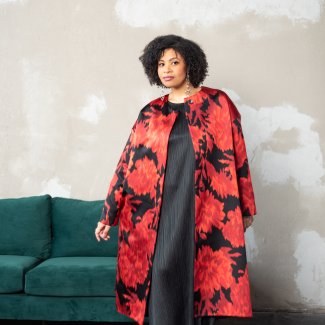

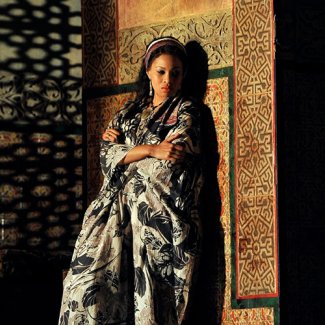

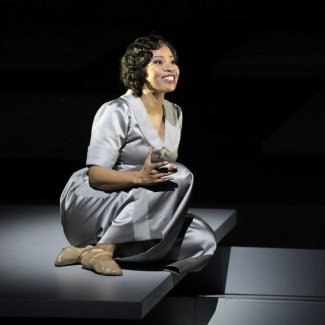
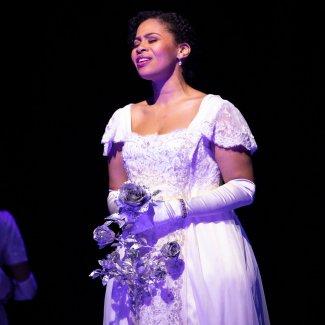
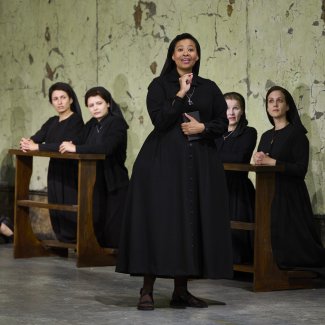
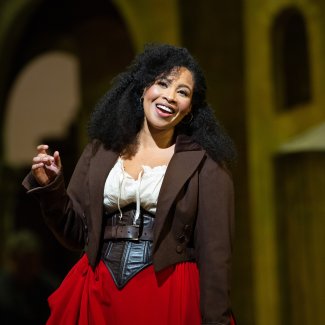
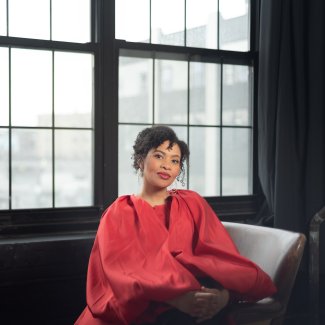
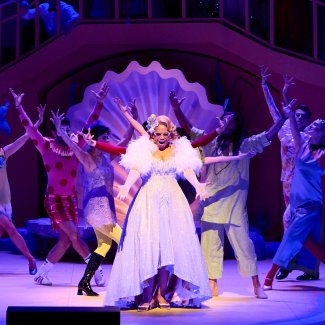
“Her voice, with its emotional swells and exacting technique, flowed with sparkling surety. In the first of her three numbers, Schultz unfurled a voice of transparent, crystalline allure, embodying the theatrical moment.”
“The voice of soprano Golda Schultz, with her intense timbre and profound interpretative sensitivity, intertwined naturally with the orchestra, to the point that the dialogue between singing and instruments made the poetic narrative of Tristan Klingsor’s lyrics palpable, evoking images of distant seas, starry nights and forbidden loves.”
“Schultz, with a voice of shimmering beauty, sang one aria from each of Mozart’s three supreme operatic creations with librettist Lorenzo da Ponte. She brought the purity of line, verve and drama that they demand, while also adding lovely ornaments throughout.”
“Rosalinde – the vocally magnificent and at times hilariously funny Golda Schultz.”
“Golda Schultz ‘s role debut as Rosalinde left nothing to be desired. Whether in the newly rewritten Csárdás, as a former nightclub singer, or as a self-assured wife at the end, she was utterly convincing.”
“Golda Schultz , as Rosalinde, sings a brilliant Csárdás with new lyrics, now entitled “Sounds of Freedom” instead of “Sounds of Home,” appearing like Botticelli’s Venus emerging from a shell.”
“Golda Schultz’s Rosalinde (in her role debut) delights the audience with impeccable coloratura and passionate performance.”
“Among the women, Golda Schultz stood apart unmistakably. Her Rosalinde combined vocal radiance and dramatic power. Her Csárdás emerged as one of the evening’s true high points: poised and expansive — a reminder that Strauss knew exactly when to let the glitter pause and the music speak plainly”
“In Kurt Weill’s tango “Youkali,” she shone with passion and a delivery that simply made you know she could effortlessly reach even higher heights, and “Lost in the Stars” had exactly the right blend of soul, transfiguration, and power.”
“Perhaps the opera should be called Donna Anna, because she becomes its central figure, the woman whose victimhood is carried and processed with such intensity, courage and honesty that we are all transformed in the crucible of her trauma. This is largely thanks to Golda Schultz’s phenomenal account of the role, a performance with such depth of emotion and musical sophistication that we all begin to breathe with her. The auditorium erupts when she takes her curtain call; this is her night.”
“Schultz found all the loving tenderness at the heart of this deeply appealing heroine. One moment of true aural magic was her gorgeous ‘Bei Männern’ duet with Papageno.”
“South African Golda Schultz as Agathe, who knew how to give both a fluidity to her high notes and a softness to her low ones, giving delicacy to her prayers and spice to her dialogue with Annette.”
“Golda Schutz’s Agathe seduces with the quivering sensuality of her velvety timbre”
“As for Golda Schultz, she pushes aside all the clouds allowing the light to come down thanks to her long, supple, deliciously timbred voice and her dreamy phrasing.”
“Schultz’s always glowing soprano broke our hearts with her grief-stricken “Ach, ich fühls” and then greeted her beloved with a radiant “Tamino mein!””
“As the long-suffering Pamina, Golda Schultz gave a model performance with a velvety, broad, even, and perfectly controlled voice. Her highly acclaimed aria, “Ach ich fuhl’s,” was a lesson in singing and expressiveness.”
“In the role of Pamina, Golda Schultz shines with poignant lyricism, imbuing her character with an emotional depth that transcends her usual naiveté. Her “Ach, ich fühl’s” is a moment of pure introspection, in which her warm soprano and gentle singing succeed in conveying the suffering of a young woman caught between love and despair.”
“As Pamina, Golda Schultz offers a powerfully sweet interpretation, with warm high notes.”
“Schultz had a golden tone as Pamina, and a similar balance of fun and seriousness. Her “Ach, ich fühl’s” was luminous and resonant, with elegance and a matter-of-fact phrasing that opened up the beauty in the musical line and the weight of emotion.”
“Schultz exuded self-confident passion, Agathe’s “Wie nahte mir der Schlummer” sensitively conveyed the bride’s insecurity and longing.”
“Amid the fluff and feathers, Schultz manages to give an insipid role remarkable depth and dimension. Her Trulove is impassioned and intelligent, and somehow, despite her victim status, seems always in charge of her destiny. When she shows compassion for Baba, for whom Tom jilts her, the gesture has stature”
“Impeccably expressive, with warm high notes naturally imbued with both hope and sadness, the soprano stands out for her excellent vocal projection: she single-handedly elevates the scene in the hospital where Tom Rakewell is moping to a luminous moment of sensitivity rather than complacency…”
“Golda Schultz brings to Ann Trulove a care of the vocal line, the specific character of her timbre, her expressive and enchanting pianissimo.”
“Her pleasant timbre, both enveloping and radiant, fills the hall of the Philharmonie de Paris with a great variety of colours.”
“Golda Schultz’s confident Fiordiligi provided angelic arcs of sound in ‘Come scoglio’ and had the entire Usher Hall in the palm of her hand in ‘Per pietà’, which she distilled like a sacred aria.”
“The glory of this revival was Golda Schultz, here making a belated Royal Opera debut. The South African soprano is blessed with one of the most golden, rich-toned voices of her generation and Fiordiligi was the ideal role for her…Here we had a great singer doing fabulous work and nothing else mattered.”
“Golda Schultz, the South African soprano, sang Fiordiligi magnificently, and played this complex character with charm, fortitude and pathos”
“The easy opulence of Golda Schultz’s creamy soprano made Fiordiligi sound simultaneously aristocratic and deeply human.”
“She is a classy Mozartian and imbues each of her arias with character, pathos and purity of line. Her timbre is velvety, but there’s plenty of attack in fearsomely taxing arias”
“Schultz’s voice is a marvel of consistency. She possesses a rich, warm soprano that maintains its color and control across all registers, resulting in effortless and smooth transitions. A good voice acting is also present in the tracks from Così fan tutte, where Schultz portrayal of Fiordiligi manages to project the character’s emotional turmoil with nuanced phrasing and a palpable vulnerability.”
“But perhaps the most beautiful is Donna Anna’s “Don Ottavio, son morta”, both proud and fragile, vocally very restrained, all in changes of tempo and affetti, which brings a “Or sai chi l’onore” of an ideal tessitura for her, an aria di furore where the character lets her rage and pain explode, to the roars of the orchestra. Golda Schultz is remarkable. Not only does she line up the scathing high notes with a very tense tune (and adds some ornaments in the process), but this virtuosity is put at the service of the expression and the character.”
“Schultz and Ware made each song a deeply involving short story. She gives listeners the feeling that each piece of music is being newly discovered as she delivers it, a sense of wonder being transmitted from artist to audience.”
“Golda Schultz’s sparkly soprano was beautifully suited to the vocal solo in the final movement. Her absolute optimism was seemingly untouched by earthly matters.”
“but it was in her sister Fiordiligi’s sublime Act II aria, Per pietà, even more so in Donna Anna’s envoi, Non mi dir, that Schultz reminded us what a poised Mozartian she is, with her shining lyric soprano and immaculate phrasing.”
“Her voice has a very characteristic colour from the middle register onwards, which allows for rich differentiation. In the treble, especially in the coloratura Schultz’s voice appears weightless. Nowadays, no top-class Mozart ensemble could be without this singer, who has the highest level of technical possibilities and, above all, her impressive creative power.”
“The soprano masters every nuance of the wide range of emotion no less effortlessly in the self-doubting ‘Per piete, ben mio’ of Fiordiligi from ‘Cosi’ and in Donna Anna’s aria ‘Non mi dir, bell’idol mio’ the finale of ‘Don Giovanni’, which she interprets with emphasis and a bright timbre.”
“Golda Schultz, in another house debut … earning a tumultuous ovation for a ‘Je dis que rien ne m’épouvante’ whose limpid radiance, delicately poised legato and ethereal pianissimos told us what we needed to know of the village girl’s unshakeable courage and faith.”
“[…] and Golda Schultz as the new prioress, gloriously poignant in leading the final, spine-tingling Salve Regina.”
“[…] and Golda Schultz, who brought exceptional warmth of tone and sensitivity of phrasing to the role of the New Prioress.”
“[…] Golda Schultz’s New Prioress her opposite – warm and almost girlish.”
“This was thanks in no small part to the contributions of South African soprano Golda Schultz in her BSO debut. Nelsons and the orchestra brought a taut dramatic intensity to the quiet opening string figurations and Schultz sang with sensitivity and a coolly gleaming radiance, together doing justice to this music’s air of mystery and veiled beauty.”
“One of the production’s standouts is soprano Golda Schultz, who is making her Lyric debut. Expect to see her again. With her fresh, dulcet voice, she poignantly conveys the innocence and steadfastness of Micaëla, drawing one of the most enthusiastic ovations of the night with her moving Act 3 aria, when she tries to pry Don José away from Carmen’s lure.”
“Golda Schultz contributing an uncommonly likeable Adina … her limpid, unforced singing carried beautifully, and she played down the woman’s coquettish side by treating Nemorino affectionately, even when discouraging his advances.”
“Schultz’s tone had the gentle, silky glow of moonlight, but with a glisten that penetrated, and she gave a sense of both Adina’s independence and her vulnerability.”
“Clara’s opening ‘Summertime’ was projected with tender richness by Golda Schultz, herself featured as one of this summer’s Lucerne Festival ‘artistes étoiles’ ”
“the star South African soprano Golda Schultz, a Lucerne Festival ‘artiste étoile’, with the American pianist Jonathan Ware, gave a stimulating recital of music spanning the past two centuries…Schultz’s warm humour beguiled her audience between sets, but the knockout power and dramatic range of her singing had the capacity crowd shouting for more.”
“In what could well be the most exquisitely beautiful music to be heard in the Edinburgh Festival…Schultz and Ware were so much more than singer and accompanist, their subtle shading spinning long smooth lines suspended in shimmering light.” ★ ★ ★ ★ ★
“Golda Schultz, with her collaborator Jonathan Ware on the piano, gives [the female composers] the floor in a real musical journey…Her pure and frank tone which marries the curve of each melody” ★ ★ ★ ★ ★
“A thoughtful celebration of songs by women, performed with flair and imagination by stellar South African soprano Golda Schultz and outstanding pianist Jonathan Ware…An alternative version of Erlkönig by Emilie Mayer finds Ware on especially fine form during the twinkling passages accompanying the ‘voice’ of the Erlking himself…an outstanding album: expertly programmed and performed with terrific verve.”
“Golda Schultz is one of those astonishingly gifted South African singers who are now taking the world’s opera houses and concert halls by storm…Schultz has a magnificent vocal instrument, rich and glowing throughout the range, with not a weak patch anywhere…overall this is a stunning debut disc of a soprano who is well on the way to operatic stardom.”
“Schultz articulates so clearly that you have to listen…Schultz leads her richly-timbred voice in a surprisingly instrumental way, thus perfectly reflecting the character of [Tagg and Palmer’s new song cycle]”.
“Not only because Golda Schultz sings with a wonderfully warm, yet extremely expressive voice, [but] her technique is so flawless that in the entire hour-long album, not a single even remotely unattractive note can be heard.”
“Schultz is putting her gifts to good use…Jonathan Ware brings a theatrical sensibility to [Mayer’s Erlkönig], matching Schultz’s ease as an art song raconteur…at her best, she sings with lustrous delicacy and operatic urgency.”
“On the other hand, it is impossible not to succumb to Golda Schultz’s Adina whose stage presence and ease are combined with a luscious voice: sweet, generous, fruity but devoid of acidity.”
“The musical realisation of this Der Freischütz is no less remarkable, with special mention to soprano Golda Schultz’s overwhelming Agathe, sung with exceptionally honeyed tones.”
“Her new album with pianist Jonathan Ware, This Be Her Verse, confirms her versatility and musical intelligence…The album’s title is from a new song cycle by Tagg, to texts by Lila Palmer. Commissioned by Schultz, they are deft, upbeat, sharp and true”
“With a luminous timbre, easy top range, warm phrasing, and wonderfully spontaneous expression, [Schultz] seduces the audience completely across each of the very different works.”
“Golda Schultz was serene and confident, her voice silky and immaculate…she was superb, singing with the combination of purity and humanity that characterises the best Strauss ingénues.”
“The South African soprano brought a programme of female composers that spanned three centuries, three languages and several continents. The resulting evening brimmed with intelligence and charm – an ideal combination of musical wit and curatorial thought that made for a concert to remember.”
“As the Countess, Schultz delivered a poised, silky ‘Porgi amor’.”
“In radiant voice from the start with Clara Schumann, the lyric soprano showed herself in full control of her artistic resources…This singer clearly loves to communicate.”
“Soprano Golda Schultz caressed the vocal line of Samuel Barber’s ‘Knoxville: Summer of 1915’ with such ease and attention to James Agee’s deceptively powerful words, that it could bring tears to a receptive listener. Her creamy soprano sound and pinpoint articulation combined with a sense of freedom that let the music float serenely…the South African soprano’s delivery channelled the flavours of small-town America beautifully.”
“With a powerful voice and passionate interpretation, Golda Schultz performs classical texts and modern poetry at Kissinger Sommer in a programme of songs exclusively by female composers.”
“Golda Schultz as Agathe is a revelation…radiating with skill and emotion”
“Really outstanding is Golda Schultz as Agathe. Her voice is warm, it is natural, it is focused, it glows – a voice whose emotional power and beauty no one can resist. This was world class.”
“Golda Schultz mesmerizes with glorious cantilenas in her role debut as Agathe”
“[O]ne doesn’t know what to praise more about [Golda Schultz’] Agathe: the almost perfect tone and breath control in her two dangerously lyrical arias, where the voice lies so naked and bare. Or the easeful depth, the soft roundness in the high notes. Or her so intelligent awareness of the text.”
“A soprano of unearthly lyrical beauty”
“The ensemble is in fact superb. First and foremost, with wonderful naturalness, with a knowing, heartfelt, magnificent soprano: Golda Schultz as Agathe.“
“But if there’s one unmissable reason to log on, it’s for Golda Schultz’s Agathe, whose luscious arias she sings with creamy beauty and an undertow of desperate fragility. Here the opera’s defining tension – purity threatened by corruption – really seems to hit home.”
“Only in the sound of the Bavarian State Orchestra […], in the warm, exceedingly captivating voice of Golda Schultz and in her face when she opens the window to the aria ‘Leise, leise, fromme Weise’, one hears and sees the soothing power of moonlight, cricket, nightingale, of evening air and birch grove.”
“Golda Schultz musically hits the blend of elegy and enthusiasm that is essential for a good Agathe. The voice is agile enough for the blissful rapture of the coloratura, the slightly dark middle register colouring the great aria ‘Leise, leise’ and the cavatina with a ravishing melancholy. The role has not been sung this well in a long time.“
“Golda Schultz is the undisputed winner [of the evening]. Her beautifully timbred lyric soprano has delightful colours, technically the voice is well led, her diction is clean and she forms a well-balanced pair with Max.“
“Outshining them all was soprano Golda Schultz: her Agathe sounded like golden sunshine, yet soft, effortlessly malleable and warm-hearted”
“Golda Schultz, the colours of her voice on magnificent display as Clara, and her ‘Summertime’ as movingly given as one is likely to hear it.”
“It was a bold reinvention much helped by the golden, easeful soprano voice of Golda Schultz, the evening’s star vocalist.”
“Some show tunes and arias, sung by the soprano Golda Schultz with a generosity and warmth that couldn’t have been more potent if she really had been singing to a packed and cheering Royal Albert Hall, rather than TV cameras and emptiness.”
“As Clara, Golda Schultz’s lavish soprano and good diction help her launch the opera with a poised ‘Summertime’.”
“The lustrous soprano Golda Schultz burnt our ears in the concert aria Ah! Perfido”
“Golda Schultz led off the evening with a meltingly beautiful ‘Summertime’.”
“The soprano Golda Schultz was a radiant-voiced and tenderly innocent Sophie.”
“Golda Schultz’s beguiling Sophie is sung with resonant tonal beauty and polished musicality, and she too has an infectious pianissimo moment.”
“In the opening scene, Clara (the exquisite soprano Golda Schultz) sings the wistful lullaby “Summertime” to her baby boy.”
“Clara, who as sung by Golda Schultz was less sheerly beautiful of voice and more believable as a person than I’ve often seen her.”
“When Schultz sings, everything becomes clear, it is as if one looks directly into the soul of the “Junge Nonne”. Because she does not create artificial drama from the verse, because she does not suppress it, but rather unlocks the song from within and in this way makes them all the more powerful.”
“the merry wives were a zesty, vocally polished lot: Golda Schultz, an exquisite Nanetta”
“the exquisite soprano Golda Schultz, endearing as Nannetta”
“the soprano Golda Schultz, in a vocally arresting company debut”
“sung with exquisite versatility and grace by debuting soprano Golda Schultz.”
“Powerful soprano Golda Schultz literally and figuratively soared, particularly with her inspirational aria “Mustn’t Fail”
“Above all, Golda Schultz makes a brilliant debut as Contessa Almaviva at the Wiener Staatsoper. Strong and energetic both vocally and in her characterisation”
“In Beethoven’s aria “Ah, perfido!” the Konzerthausorchester delicately supported Schultz’s powerful vocal performance, lending her voice to the contradictory feelings of anger and despair through the aria. In Mozart’s concert arias “Vado, ma dove” and “Misera, dove son,” desperate women are on show, but Golda Schultz’s soprano is full of self-confidence.”
“the enchanting soprano Golda Schultz.”
“Golda Schultz’s solo ‘Ihr habt nun Traurigkeit’ offered a near ideal blend of the angelic and the womanly”
“Golda Schultz’s fine voice floated beautifully and eloquently into the vast auditorium.”
“Golda Schultz’s sparkling Susanna…Schultz’s soprano is cream and gold – and [she and the Contessa] heart-stoppingly intertwine in the Letter duet.”
“The South African soprano Golda Schultz, new to me, was a consistent joy in the Cleveland Orchestra’s recent presentation of Haydn’s oratorio “The Seasons”…Ms Schultz, a favourite of Mr Welser-Möst, sang with clear, pure tone and conveyed a sparkling personality, with a ready sense of humour”
“Of the trio, the standout by far was the Hanne of Golda Schultz … she brought a winning, bright-eyed stage presence to match the irresistible energy of her voice. …. her soprano is at its most affecting when she lets it be cool and liquid. She can spin off a line of pure silk with ease, and showed perfect control … delicately and precisely crafting her phrases”
“Golda Schultz is earning a reputation as an up-and-coming opera star, and she did not disappoint here. Her tone was pure and shining, and she managed Haydn’s many high notes with floating ease; her coloratura was cleanly articulated.”
“Golda Schultz a rich-voiced Pamina.”
“Another debut artist, the soprano Golda Schultz, was the true star of “Flute” as Pamina, her voice buoyant yet substantial, creamy but never heavy.”
“Lovely and girlish onstage, she offered a radiant, sunny lyric sound deployed with seamless legato throughout her range. All of Pamina’s potential trouble spots — the double climax of “Bei Männern,” the G minor aria’s many pitfalls, the sustained B in “Bald prangt” — were taken with great aplomb.”
“the South African soprano Golda Schultz making a dazzling debut as Pamina”
“Golda Schultz gives us a wonderfully sophisticated super-bitch as Vitellia” *****
“In the role of Vitellia, Golda Schultz sings with a round and sonorous tone…[she] makes Vitellia’s rage and remorse all the more palpable”
“Golda Schultz is a wonderful Vitellia who, with her noble, passionate soprano, impressively transforms from vengeful to repentant.”
“Golda Schultz sang with a silky, glossy soprano as Vitellia”
“Ms Schultz was magnificent in every way [as Sophie]”
“That role [Liù] was shiningly sung by Golda Schultz, suggesting a stellar future in the ‘Freni’ roles (her limpid pianissimos at the climaxes of ‘Signore ascolta’ and ‘Tu che di gel sei cinta’ were something to marvel at).”
“The best in the cast was South African soprano Golda Schultz as Liù…Her attractive voice is nicely suited to the role, and she sings with gusto”
“Soprano Golda Schultz has a voice that is well-suited to the role of Susanna. She’s very musical and sings with gusto.”
“The South African soprano Golda Schultz was a revelation as Susanna, with a polished timbre, great musicality and precise diction; subtly sensual and flirtatious, she sang her aria “Deh vieni, non tardar” impecabbly, sitting inside a crystal chandelier suspended above the stage.”
“Golda Schultz’s honeyed timbre…Self-confident and vocally agile in her arias”
“Golda Schultz was a jaunty Susanna in her stage presence and musicality. A rather traditional characterization, her duets with Figaro and the Count demonstrate her sensuality in “Giunse alfin il momento”, and gentle playfulness with the Contessa in “Canzonetta sull’aria”.
“Golda Schultz, who has sung Contessa in Zürich, debuts here as Susanna, a role that fits even better with her comedic character.”
“It was Villa-Lobos’s magnificent Bachianas Brasileiras No 5, however, that stole the show, though that was as much due to the singer — the fast-rising South African soprano Golda Schultz — as the 12 cellists. What a luscious, full-blooded timbre she has; even her humming in the famous Cantilena sent shivers down the spine. And what energy she thrust into the fast-pattering syllables of the Dança.”
“A top cast includes some notable debuts: the South African soprano Golda Schultz makes a tremendous, honey-toned Countess Almaviva.”
“Once in a while a singer new to Glyndebourne gets the house tingling. It happened in 2005 with Danielle de Niese…I felt another crackle of electricity with Golda Schultz – born in South Africa, experienced in Germany, cast as the Countess in Mozart’s Le nozze di Figaro. Schultz doesn’t just add exotic colouring to Michael Grandage’s 2012 show…She also lends a dark vocal lustre and depth of feeling that are immediately showcased in her aria bemoaning the Count’s infidelity.”
“But it’s the women who are exceptional. It’s hard to imagine finer soprano singing or [a] more exuberant portrayal of the Countess than [that] supplied by Golda Schultz”
“South African soprano Golda Schultz, as Countess Almaviva, has an exquisitely beautiful voice”
“there was time and space for Mozart’s sublime moments. The best of these was the Countess’ lament “Dove sono”, which Glyndebourne debutante Golda Schultz sang with heartfelt beauty, smoothness of voice, with a carefully measured touch of vibrato.”
“Golda Schultz gave a clear interpretation and excelled as Liù. With a very fine piano, she soared in “Signore ascolta”…With a crystal-clear timbre, she personified the goodness of her character consistently, and even in her final aria before she died “Tu, che di gel sei cinta” demonstrated her unwavering loyalty [to Calaf].”
